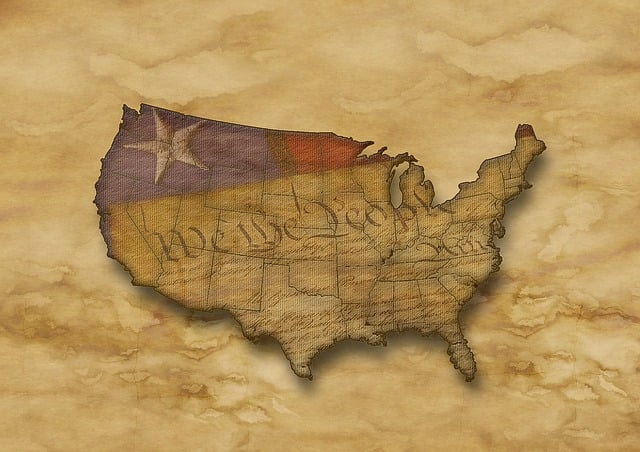
Another Preliminary Injunction in OMB Memorandum (M-25-13) Litigation
03.12.2025 | Linda J. Rosenthal, JD

We’re now at the fourth installment of our special series about activities restrictions on 501(c)(3) organizations in tumultuous and consequential election years like this one. See The Johnson Amendment: Bite-Sized Morsels for 2024 (January 24, 2024).
”’Myths abound “… about whether, or to what extent, a tax-exempt charity may jump into the political fray as each campaign season heats up. The goal of these mini-refresher posts is clearing away the fog on these important questions.
Yes, a 501(c)(3) organization may not “… participate in, or intervene in (including the publishing or distributing of statements), any political campaign on behalf of (or in opposition to) any candidate for public office.” [Bolding applies to a minor 1986 amendment tweak for clarification.]
And yes, there can be serious – sometimes catastrophic – consequences for violating this ban.
But these 31 words comprising what is commonly called “the Johnson Amendment” do not, as many people believe, gobble up anything and everything that might arguably be “political” or related to “politics’ or to a “politician.” See Johnson Amendment First Morsel: The Thirty-One Words (March 12, 2024).
There is considerable wiggle room in the statutory language. There are exclusions from this statutory prohibition along with express and implied exceptions. In short, there are many legitimate escape hatches. See Johnson Amendment Second Morsel: Escape Routes (March 31, 2024).
The best strategy for the nation’s public charities to navigate smoothly and safely through the months ahead until November 5, 2024 is: (a) understanding the outer edges of the Johnson Amendment, and (b) proceeding outside those boundaries. Take the bullseye off your back. There’s plenty of room outside that relatively small target zone for permitted and legitimate advocacy for your mission and favorite causes and projects.
In Johnson Amendment Third Morsel: Some Lobbying OK (April 4, 2024), we began a discussion of what is probably the best escape hatch from the pit of despair that is the Johnson Amendment; namely, “lobbying.”
There are two separate and independent reasons that the Johnson Amendment does not apply to “lobbying.” (Why is “lobbying” inside quotes here?: because the Internal Revenue Service tells us that “lobbying” is shorthand for “attempting to influence legislation.” See below.)
First, the express language chosen for the Johnson Amendment has no connection at all to “lobbying.” The politics ban applies only when there is participation or intervention in a political “campaign.” No campaign: No Johnson Amendment problem.
Second, section 501(c)(3) includes a separate clause that expressly and intentionally permits “some” lobbying as long as it is not a “substantial” part of the organization’s activities. This “yes to some lobbying” language precedes the Johnson Amendment both in terms of its location inside 501(c)(3) as well as in time. Twenty years before the politics ban popped up inexplicably in the 1954 version of brand-new Internal Revenue Code section 501(c)(3), Depression-era lawmakers had already approved the limited “go-ahead” for legislative activities in the 1934 predecessor statute. These same members of Congress, though, had considered some kind of full or partial politics-banning language, but rejected it. See The Political Ban in 501(c)(3): Its Odd History (June 23, 2016).
“Lobbying,” the IRS explains on its information page titled “Charities and Nonprofits/Lobbying,” is shorthand for “attempting to influence legislation.”“
“In general, no organization may qualify for section 501(c)(3) status if a substantial part of its activities is attempting to influence legislation (commonly known as lobbying). A 501(c)(3) organization may engage in some lobbying, but too much lobbying activity risks loss of tax-exempt status.”
“Legislation includes action by Congress, any state legislature, any local council, or similar governing body, with respect to acts, bills, resolutions, or similar items (such as legislative confirmation of appointive office), or by the public in referendum, ballot initiative, constitutional amendment, or similar procedure. It does not include actions by executive, judicial, or administrative bodies.”
.“An organization will be regarded as attempting to influence legislation if it contacts, or urges the public to contact, members or employees of a legislative body for the purpose of proposing, supporting, or opposing legislation, or if the organization advocates the adoption or rejection of legislation.”
There are several important points mentioned by the IRS that are ripe for further development and discussion in our upcoming Fifth Morsel post. They include, for example:
In Federal Law Protects Nonprofit Advocacy & Lobbying, the National Council of Nonprofits confirms that the express language of section 501(c)(3) permits and “supports not only not only broad advocacy but also legislative lobbying….”
For more information on permitted advocacy, check out the resource-rich website of Bolder Advocacy.
– Linda J. Rosenthal, J.D., FPLG Information & Research Director
